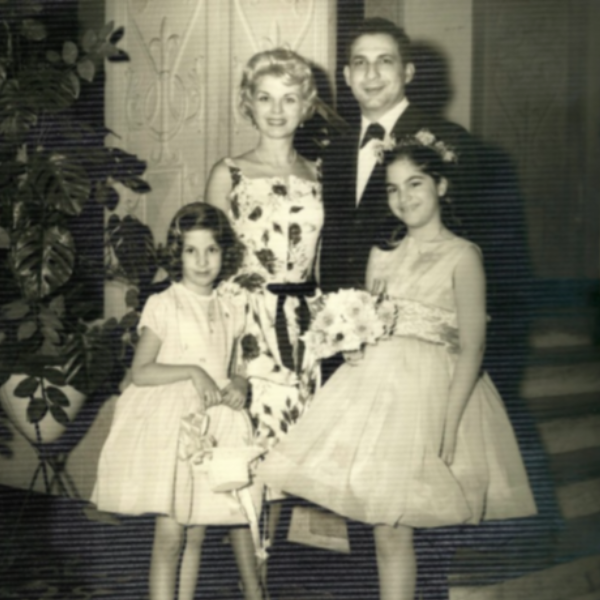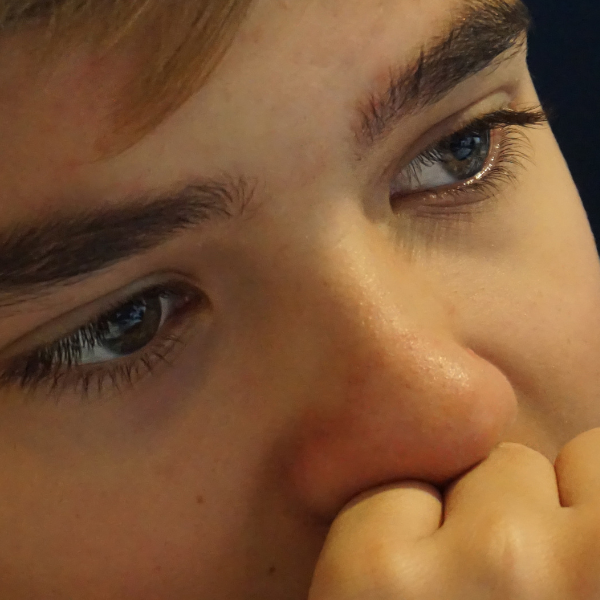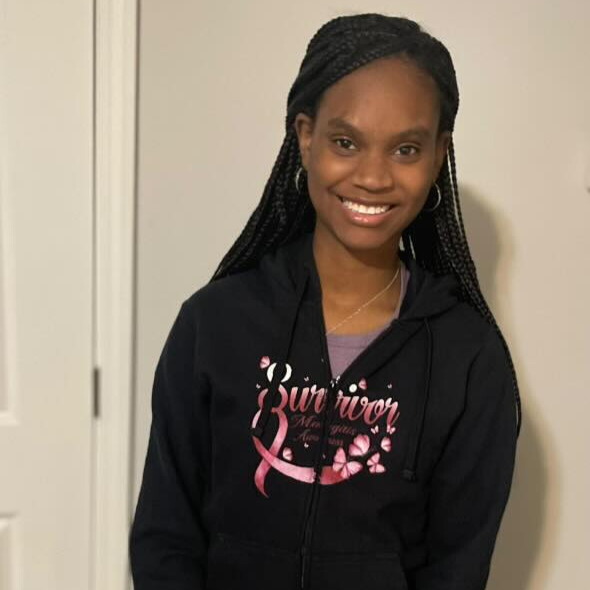by Hollie Yoder
As a nurse practitioner, I always made sure my daughters had all their vaccines on schedule. When their pediatrician asked if I wanted to give them their human papillomavirus (HPV) vaccine, I enthusiastically said yes. My daughters didn’t argue either, though they hate getting shots as any pre-teen does. Why the enthusiasm for this vaccine in particular? The HPV vaccine was more personal to our family.
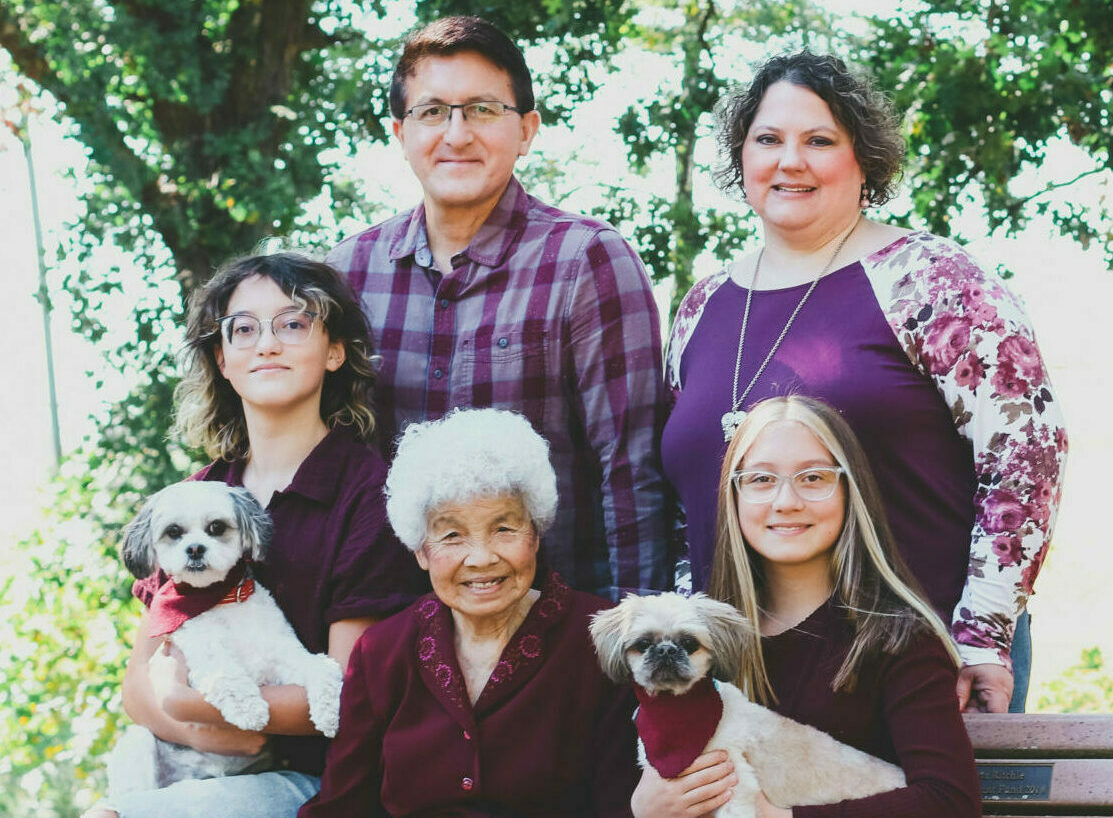
My husband’s first symptoms
In 2014, my husband was sent to a Texas air force base for two months of training through his government job. During a weekend visit with our family, he said, “I have a lump on the side of my neck.” As a nurse practitioner in primary care, I took a quick look and noted he also had an enlarged tonsil. Without time to go to the doctor before he returned to base, I got him antibiotics for presumed tonsillitis.

Family selfie the weekend Randy came home from Texas to visit.
He flew back to the base and another week went by. When I asked him how his throat was, he told me his tonsil was still enlarged and he still had the lump. I was alarmed that his tonsil was still swollen and concerned he could have an abscess or something worse. I told him to get it checked by a healthcare provider. He promised me he would.
He went to a convenient care clinic off base where he was treated with prednisone and a change in antibiotics. The clinic also set him up with an ear, nose, and throat (ENT) specialist appointment a week later.
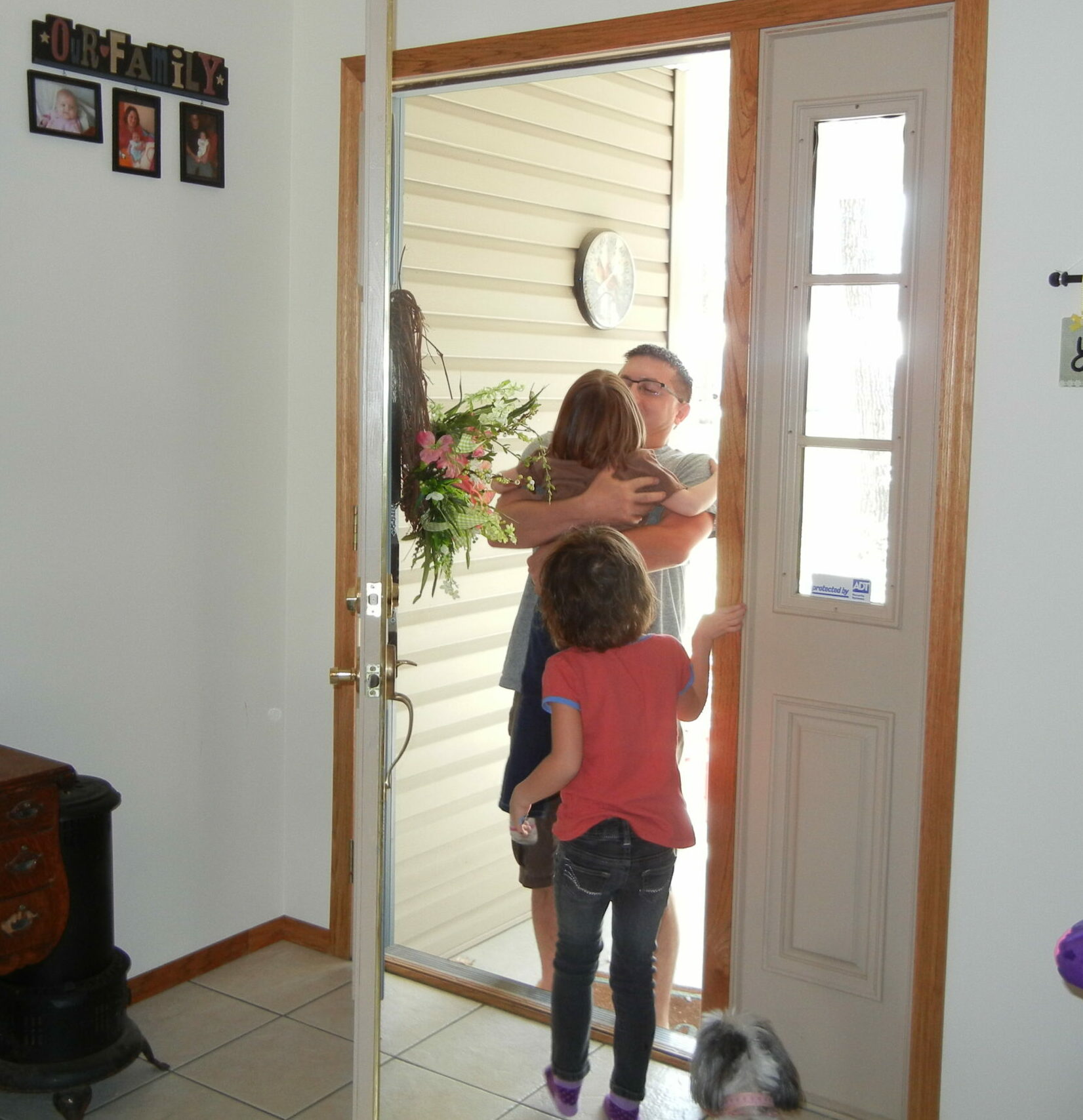
Randy came home a few days early due to his cancer diagnoses.
A long-distance call
I’ll never forget the day I got the call from my husband. He had just left the ENT’s office. He asked me if I was sitting down. I was scared and unsure what was going on. He told me he had cancer. The ENT’s office had taken a biopsy—but told him they were quite sure he had cancer of the throat. My husband was only 46 years old.
We were shocked and asked all the usual questions. How could this happen? He is so young. He smoked when he was younger, but quit before we were married in 2005. What did this mean for our future as a family? The situation was compounded by the fact that he was still in Texas. Luckily, he had less than a week of training left.
My husband returned home and we experienced a very rough spring and summer. My husband underwent a tonsillectomy, then he experienced bleeding complications requiring a second surgery. Chemotherapy and radiation therapy followed. For a while, he couldn’t work. Relatives and friends took him to his chemotherapy and radiation treatments so I could continue to work.
He lost his taste and could barely eat, due to the pain in his throat and mouth from the radiation. Many of these patients end up with feeding tubes because they have too much pain to take anything by mouth during neck radiation. Somehow, my husband got by without a feeding tube.
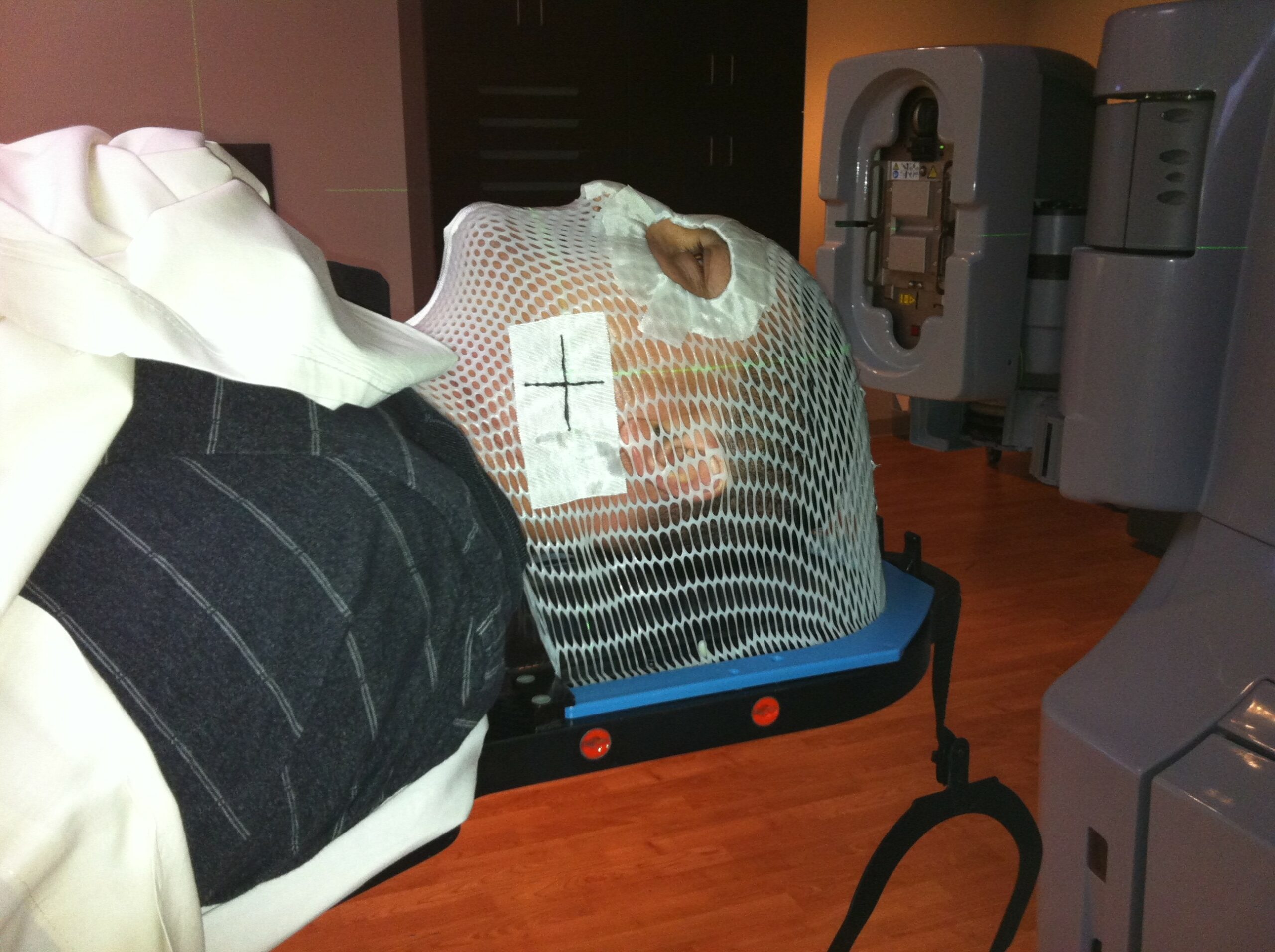
Randy undergoing radiation therapy.
What caused my husband’s cancer
We learned that his cancer was not caused by smoking; it was caused by HPV. Patients with this type of oropharyngeal squamous cell carcinoma do not always have the traditional risk factors that are usually associated with head and neck cancers such as smoking, smokeless tobacco use, or alcohol consumption. They cause only a minority of cases, with HPV causing the majority.
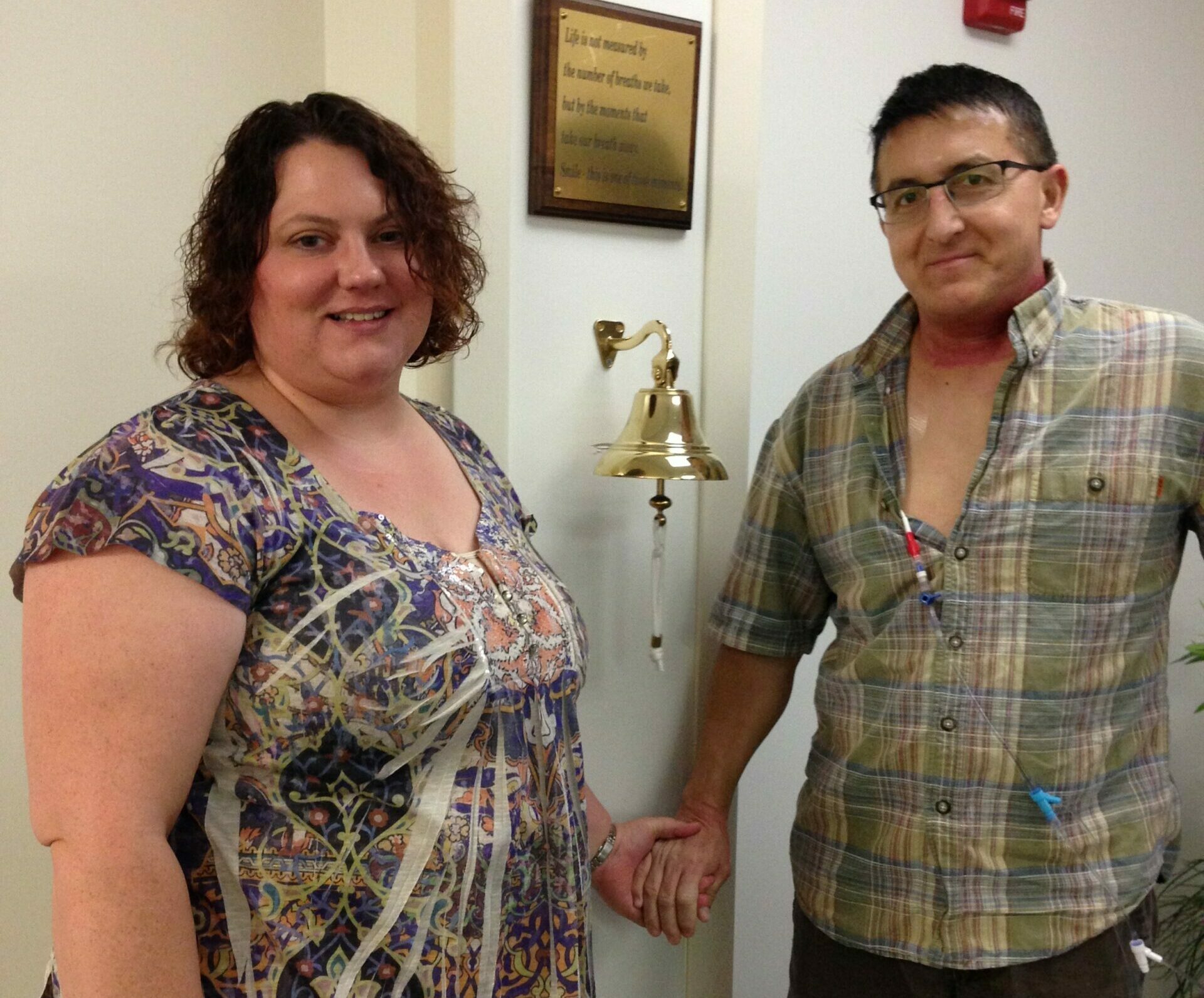
Randy getting to ring the bell at his last chemo treatment.
Gardasil is a cancer-preventing vaccine
I explain the importance of the HPV vaccine (Gardasil) to parents. Sometimes I tell them our story, about the year my husband was diagnosed with HPV+ throat cancer and survived. And then I tell them about our two daughters who will not have to worry about it thanks to a life-saving, cancer-preventing vaccine.
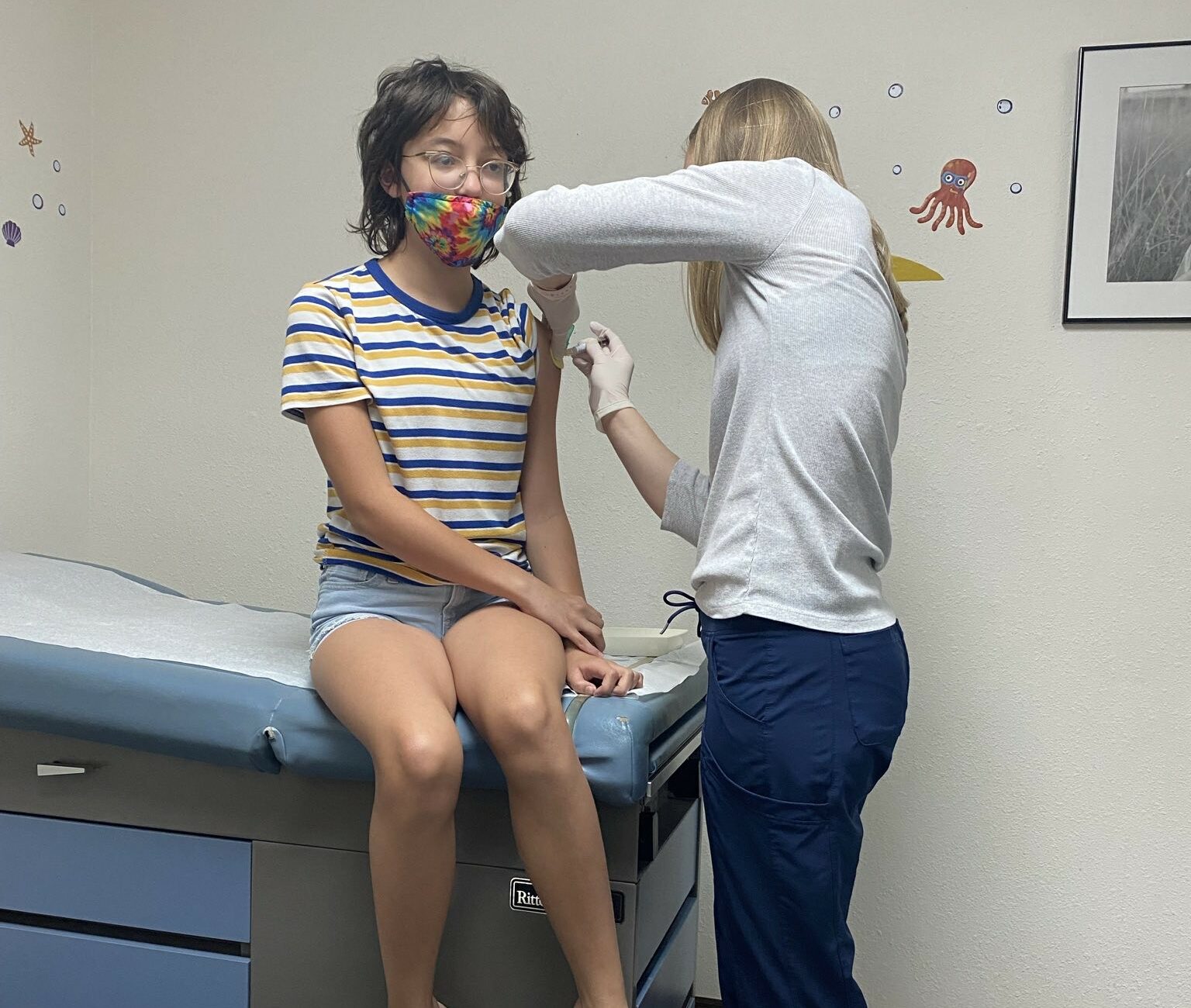
Bridget getting her Gardasil 9 HPV vaccine.
Human papillomavirus (HPV) is most well-known for causing cervical cancer, but it’s actually a culprit in 5 different types of cancers. Basically everyone will be exposed to this virus at some point in their adult life, but every year, for tens of thousands of people, it goes on to become carcinogenic.
In my role as a nurse practitioner, I explain the importance of the HPV vaccine to many moms and dads of pre-teens and teenagers. Most people are aware of the link between HPV and cervical cancer. However, I have found that most people are unaware of the link between HPV and head and neck cancers.
Hollie Yoder is a wife, mother, and nurse practitioner. Her story, like all others on this blog, was a voluntary submission. If you want to help make a difference, submit your own post by emailing us through our contact form. We depend on real people like you sharing experience to protect others from misinformation.

